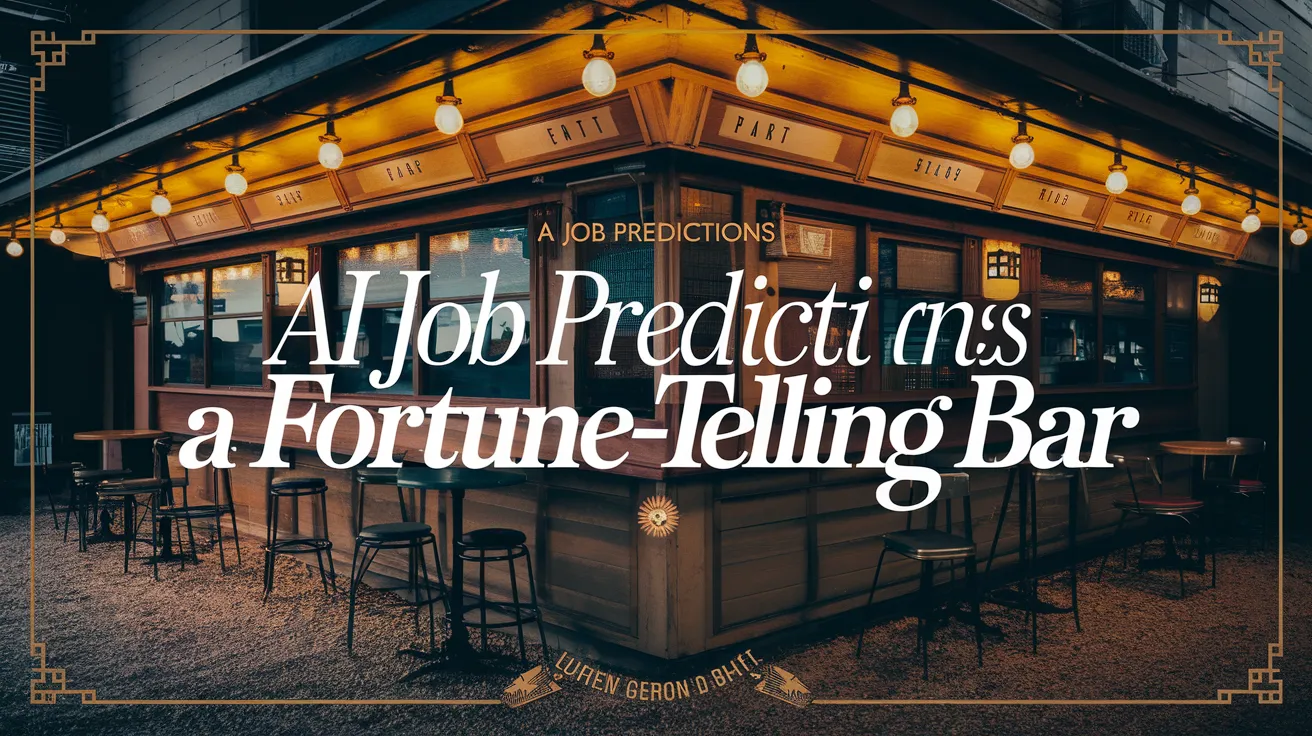AI Job Predictions: A Visit to a Fortune-Telling Bar

In a time characterized by self-help and self-improvement, a unique trend is emerging in urban China where many are seeking guidance from ancient practices rather than contemporary technology. As the economy faces challenges, young Chinese are increasingly turning to fortune-telling bars as a source of insight into their futures, particularly concerning job security amid the rise of artificial intelligence (AI).
A New Type of Venue
Fortune-telling bars, such as Qie Le in Beijing’s Chaoyang district, have become popular hangouts, combining the ambiance of social drinking with traditional Chinese spiritualism known as xuanxue. These establishments not only provide drinks and snacks but also a chance to engage with age-old forms of divination, especially appealing in an environment where traditional retail therapy is becoming less affordable.
Experiencing the Ritual of Qiuqian
Upon visiting Qie Le, guests can partake in a unique fortune-telling practice called qiuqian, where wooden sticks are used to seek answers to questions through ancestral insight. Wan Mo, the resident fortune-teller, guides visitors through the process of asking their questions while shaking the sticks. When the first question, regarding the impact of AI on one’s job, is posed, the response indicates a troubling foresight.
Predictions for Job Security
According to Wan Mo’s interpretation, although the individual may possess talents, the scalability of AI poses a substantial threat. The prophetess states that within three years, AI will significantly disrupt job structures, stirring anxiety about future employment stability that is reflective of a broader societal concern. This notion resonates with many young professionals anxious about their roles in an increasingly automated world.
A Second Inquiry and Mixed Messages
Curiosity leads the author to further explore personal ambitions by questioning whether a pay rise is on the horizon. The response is less than optimistic, indicating a likelihood of stagnation and the necessity for personal adjustments. Instead of definitive advice, Wan Mo suggests spiritual enhancements, like wearing a wealth-attracting bracelet, emphasizing the dual necessity of personal initiative and spiritual support in seeking success.
Common Anxieties of the Millennial Generation
This encounter reflects broader trends among millennials who are increasingly questioning their career paths in the light of technology’s relentless advancement. As established norms blend with traditional beliefs, many find themselves grappling with the reality of AI’s potential to disrupt employment while seeking reassurance through ancient methods of divination.
As patrons frequently visit bars like Qie Le with hopes of gaining insight about financial success, health, or love, it becomes evident that modern challenges, such as the threat of AI job displacement, have led to a revival of interest in historical wisdom. In this age of uncertainty, navigating the future often requires balancing technological advancements with time-honored beliefs, making the case for human intuition amid the influx of AI.